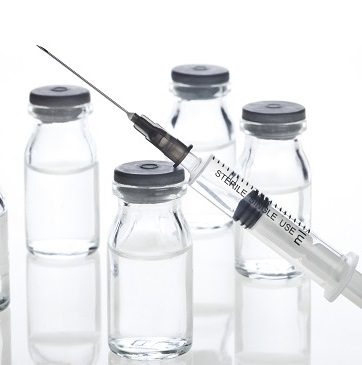Is Injectable Naltrexone Safe For Opioid Addiction Treatment?
Naltrexone is a medication that directly counteracts the intoxicating effects of legal and illegal opioid narcotic substances. Doctors sometimes use the medication to treat people recovering from opioid addiction, but the success of this treatment depends largely on each individual taking his or her naltrexone dose on a regular basis.
In a study published in March/April 2014 in the American Journal on Addictions, a team of Chinese researchers explored the safety of a long-lasting, injectable form of naltrexone that could eliminate some of the concerns about maintaining regular dosing of the medication.
Naltrexone For Opioid Addiction Treatment
 Scientists classify naltrexone with a group of substances known as opioid antagonists. When they enter the bloodstream, all of these substances travel to the sites that normally give opioid drugs and medications access to the brain. Once they reach these sites, opioid antagonists physically block opioids and prevent them from producing their narcotic effects.
Scientists classify naltrexone with a group of substances known as opioid antagonists. When they enter the bloodstream, all of these substances travel to the sites that normally give opioid drugs and medications access to the brain. Once they reach these sites, opioid antagonists physically block opioids and prevent them from producing their narcotic effects.
Naltrexone, in particular, can play a role in opioid addiction treatment because it blocks the effects of opioid substances, lowers the level of opioid craving in recovering addicts and helps diminish the chances that recovering opioid addicts will relapse.
Unlike two opioid-based medications—called methadone and buprenorphine—commonly used in opioid addiction treatment, naltrexone is not a controlled substance. This means that doctors and other qualified health professionals require no special licensing to prescribe it. Many health professionals prescribe an oral form of the medication that patients must take every day.
Injectable Naltrexone
Extended-release, injectable naltrexone is also known as depot naltrexone. Doctors or other qualified professionals administer this medication directly into muscle tissue (typically the gluteus muscles). Instead of dissipating in the bloodstream relatively rapidly like oral naltrexone, extended-release, injectable naltrexone gradually enters the bloodstream for roughly one month and blocks access to the effects of opioid drugs and medications throughout that time.
The main potential benefit of this form of naltrexone is improved compliance with the abstinence goals established in opioid addiction recovery programs. Like the short-acting oral version of the medication, depot naltrexone can trigger severe withdrawal symptoms if given to a recovering addict who still has opioids in his or her system.
For this reason, standard treatment guidelines stipulate that doctors wait at least a week after the verified end of opioid intake to administer the medication. The U.S. Food and Drug Administration approved the sale of an extended-release, injectable naltrexone product called Vivitrol in 2010.
Safety Of Injectable Naltrexone
In the study published in the American Journal on Addictions, researchers from three Chinese institutions used a small-scale trial to assess the safety of injectable depot naltrexone and examine patients’ ability to tolerate the medication.
All told, this trial included 36 people. Twenty-four of these individuals participated in a separate panel. Six people in this panel received a relatively high 400 mg dose of injectable naltrexone, while another six received a relatively low 200 mg dose of the medication. Twelve people in the panel received placebo injections that mimicked either the 400 mg naltrexone dose or the 200 mg naltrexone dose. The remaining 12 study participants were enrolled in a second panel and randomly received either six monthly 400 mg naltrexone injections or placebo injections that mimicked the naltrexone injections.
The researchers found that both the recipients of the 200 mg injections and the 400 mg injections still had medically significant amounts of naltrexone in their bloodstreams one month after dosing. Eleven of the people who received injectable naltrexone had some sort of adverse reaction while using the medication.
The researchers concluded that seven of these reactions were potentially the result of naltrexone exposure; however, they also concluded that none of the observed reactions produced moderate or severe effects.
Overdose Risks?
The authors of the study published in the American Journal on Addictions found that extended-release naltrexone injections deliver steady amounts of the medication for a minimum of one month. They also found that the medication does not accumulate dangerously after multiple monthly injections occur.
Overall, they concluded that extended-release, injectable naltrexone is tolerated well by patients and does not pose any undue safety risks.
On a related note, the federal Substance Abuse and Mental Health Services Administration points out that fatal or non-fatal opioid overdoses sometimes occur in people who receive monthly naltrexone injections but still continue taking opioid substances; however, the same overdose risks also apply to users of oral naltrexone or opioid-based treatment options.
If You Or Someone You Love Is Struggling With Addiction, Call Us Now! Help Is Waiting.
See Why Naltrexone Helps Reduce Amphetamine Use Could This Be An Effective Treatment For Your Addiction?



